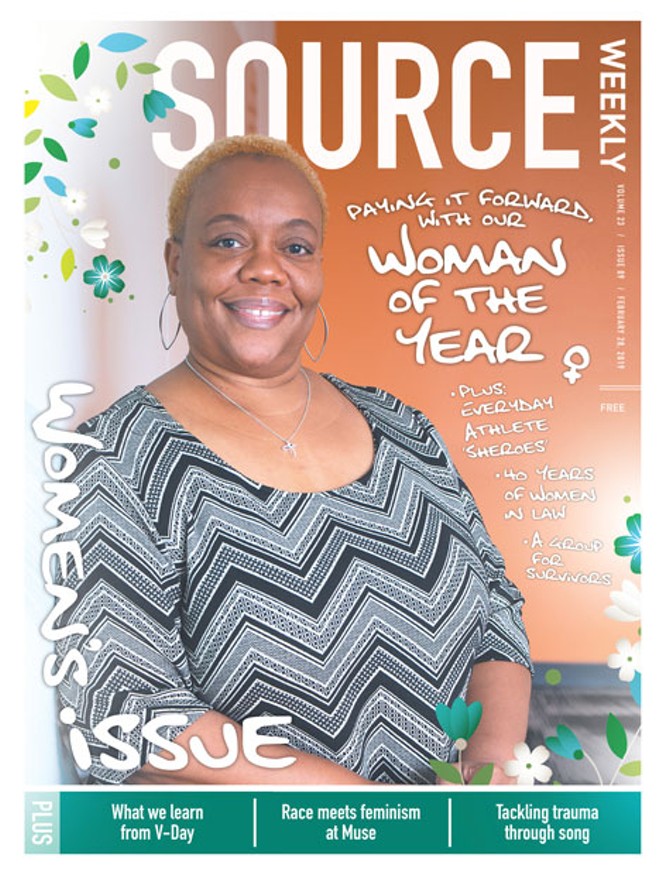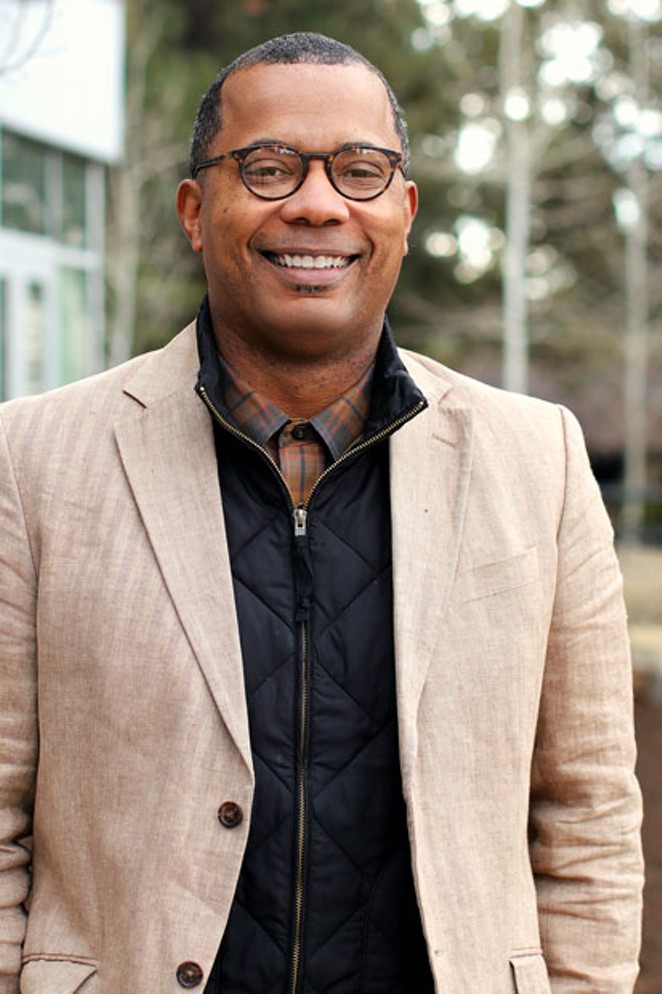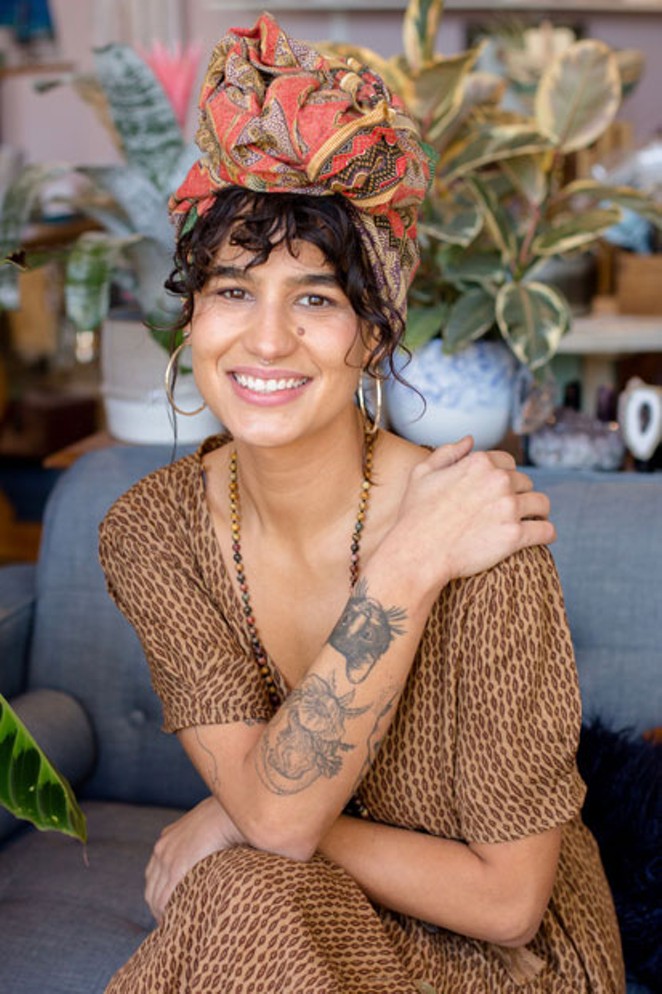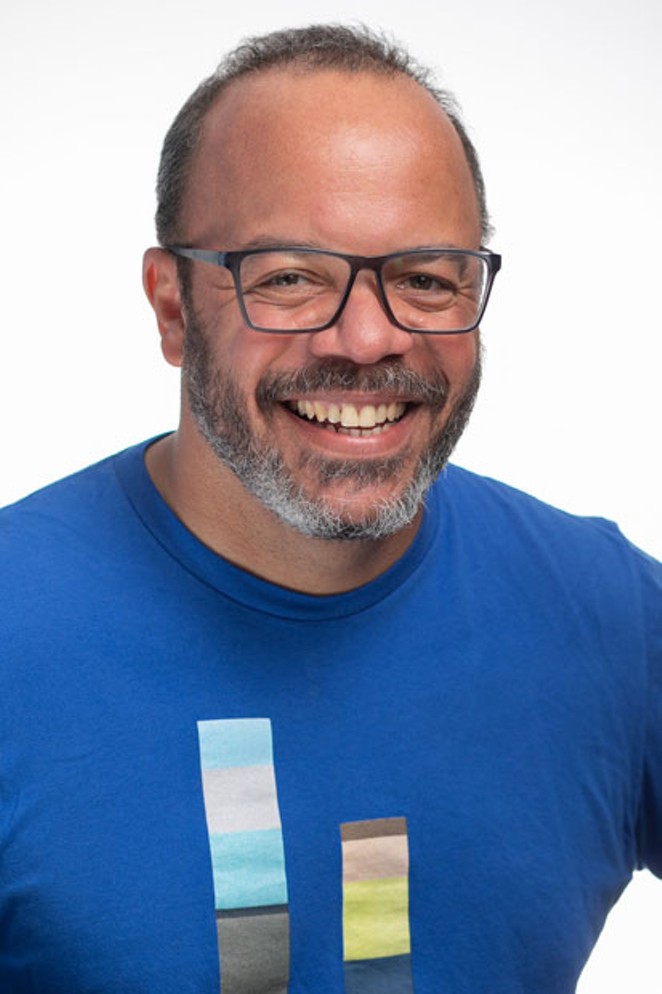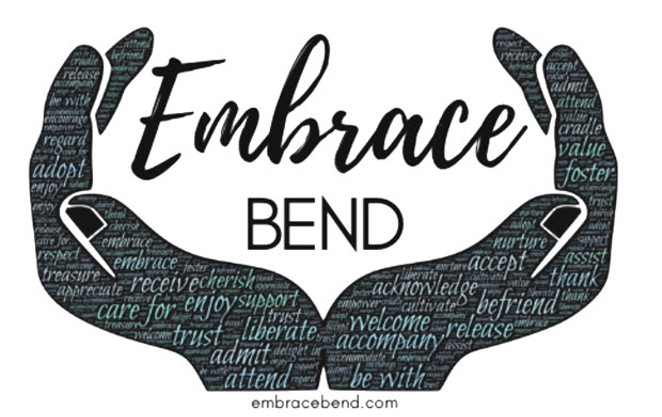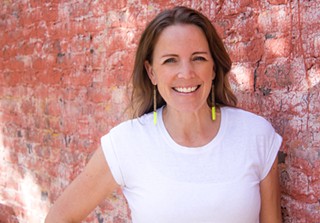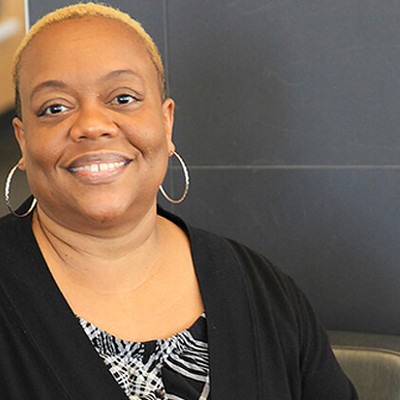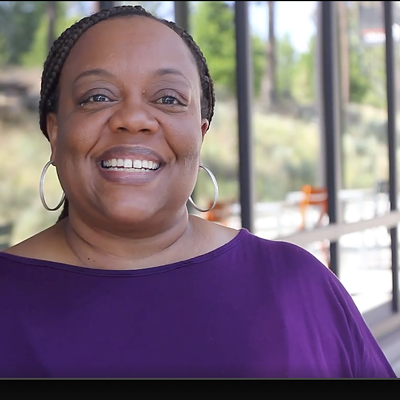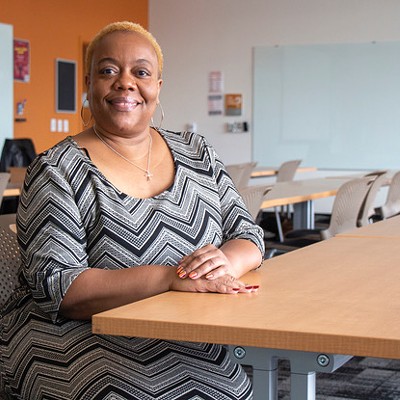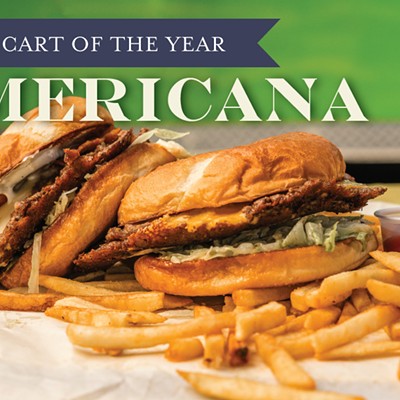In Central Oregon, conversations around race often start with the phrase,"Bend is so white." While Census figures show that the region is majority-white, thousands of people of color live, work and play here, too.
In the first of several open forums sponsored by the Source Weekly and led by the Source's 2019 Woman of the Year, locals share their experiences as people of color in the region.
You're invited to attend to hear from community members and to ask meaningful questions, and to leave with resources that can further their own growth and understanding. Stay tuned for other forums to follow!
The Story Behind the Series
Last year, the Source Weekly named Erika McCalpine our 2019 Woman of the Year. After featuring her story in the spring, the relationship continued throughout the year, including conceiving and creating this series, together with a group of other members of the Central Oregon community.
McCalpine describes herself as a mother, educator and a black woman. She's also an instructor at Oregon State University-Cascades. Her goals in Bend include being a great educator, but also having an impact on the community in a positive and loving way—and not, in her words, to "shake a finger at people and tell them they're wrong and they need to do this or that... but to have a dialogue and conversation and to come to a place of enlightenment together."
To give readers a better sense of what we aim to achieve in this and the other upcoming Love Your Neighbor forums, I recorded this recent conversation with McCalpine.
Source Weekly: Let's talk about where the idea for this series came from.
Erika McCalpine: I noticed in attending several events about race around town, where national speakers or activists have come to Bend and have given a talk, that many citizens of Bend—or people in the Central Oregon community—would always ask the question, "What could I do?" or "How can I get involved?" or "I don't know anyone of color in the community." So I wanted to create a forum where people of color in this community, that live here, that work here—our children go to school with their children—can share our experience here, and also provide a way where people are able to know what they can do and how they can get involved.
SW: This has been a genesis over the past year, since you were named 2019 Woman of the Year. What does doing something like this mean to you and to your family?
EM: It means a lot. It's putting myself and the people that are participating on the panel... we are opening ourselves up in a way that makes us vulnerable in our community—but I do believe that it's a necessary vulnerability, because many micro-aggressions and things that people do come from a lack of knowledge. So perhaps being in an environment where it's safe to ask questions of people from your community can help open the eyes of people that we're just people, too. We just want to live and thrive in this community just like everyone else.
In terms of what it means for my family—you know, it just creates more acceptance. I have a son that's a freshman at Summit (High School) and a daughter who goes to OSU-Cascades, and I want them to continue to feel welcomed and accepted for who they are in this community.
SW: What do you hope people get out of this series of forums?
EM: I want people to walk away with a better sense of understanding. In our society now, we hear a lot of messages centering around fear—fearing people that are different or fear mongering even—to create negative messages about certain groups of people. I just want people to see that every person from a group is not the way movies portray a group of people. I want people to walk away knowing that it's OK to get people to know people in your community that aren't like you.
The Panelists, in Their Own Words
Judith Sadora
Share your thoughts about what it means to be a person of color—and a neighbor—in Central Oregon.
Being a person of color in Central Oregon began almost a year ago when I moved here from Las Vegas for work and the outdoor culture. I am a mental health professional that works as a Wilderness Therapist at Evoke Therapy Programs at Cascades. I work with adolescent boys of color out in the back country of Central Oregon. I moved to Central Oregon because I fell in love with the backcountry and the universal love for the outdoors that I didn't experience in Vegas.
Being a person of color in the great outdoors has so much meaning for me due to the lack of representation of those who look like me on the trails. I pride myself in being an advocate for diversifying the outdoors both in my personal life and in my profession. Being a person of color living in Central Oregon, a place that prides itself in outdoor adventure, deconstructs the narratives that limit the accessibility of people that look like me to explore the outdoors. I see myself and the clients I work with in the backcountry as part of this community and everything it stands for in nature. My contribution to this community is to break narratives that people of color do not have accessibility to the great outdoors or do not enjoy the outdoors. As a neighbor, I have enjoyed the healing properties and benefits of nature and I plan to pass mother nature's blueprint down to my children and generations to come.
Share your experience navigating interracial relationships.
Throughout my life I've had many experiences in navigating interracial relationships, including my marriage. These experiences have taught me so much about myself and what any relationship needs to flourish and grow. Navigating spaces shared by other races, especially when I am usually the minority, has challenged my identity development. Being a teenager and young adult was a difficult time for me, especially since developmentally it was the time for me to figure out who I was in relation to the community around me.
Through the process of assimilation, I had to find parts of me I lost and deconstruct ideas of myself that I always thought were true in relation to those around me. This process has been difficult, but freeing at the same time. Navigating interracial relationships has allowed me to develop and grow in who I am as a Haitian-American with the historical roots I possess. These experiences have also taught me what it means to LOVE others that are different from me. Being in interracial relationships has taught me, not the rules of relationship, but what it means to be authentic and vulnerable. To be seen and to see reproduces healthy attachment to others. There have been interracial relationships that have not ended well due to the lack of this very concept. My truth in any relationship with others is to truly see and be seen. This is a truth that breaks down barriers and extends the hand to LOVE thy neighbor.
Marcus Legrand
Legrand describes himself as a father, husband, educator and activist who appreciates the humanity in people.
Describe your interpretation of "code-switching."
Code-switching and stating your credentials go hand in hand with me, because in most professional and social situations you go in with a preconceived notion. I have to sound credible, intelligent, and most of all I have to show receipts in order to even get a seat at the table. Next, at times you do a ton of self-talk, pick your words carefully, not partake in any beverages, etc... because you cannot slip up and mess up your chances to get a job, a promotion, or just be included or asked to do things.
Next, once people hear that you went to a specific or well-known university or worked for a Fortune 500 company or school district, they have a tendency to ease or relax their posture. The only thing that really irritates us when it comes to code-switching is when someone of the dominant culture jumps in and tries to tell our truth or tries to lead the discussion on our behalf. Finally, code-switching happens inner-racially as well; we have a tendency to ever switch based on where we are visiting (relatives, unsafe neighborhoods, regional locations) so we make sure we are OK.
Share your experience navigating mixed-race relationships.
First, the challenges, not knowing how your family or families feel about the relationship. Next, how do your colleagues and friends feel about your significant other? How are you going to raise your children? Based on the things you do, will this impact your partner professionally, socially, religiously and emotionally. Considerations: make sure you have those hard conversations with one another; including race, bias, cultural appropriation, where do you want to live, education and money. Because more times than not you both grew up in different environments and for a relationship to work, you have to garner trust, respect and have the willingness to be transparent with one another.
Jessica Amascual
Jessica Amascual describes herself as an artist, poet and community builder, holding affinity spaces for people belonging to non-dominant culture groups. She is Filipina, Lenape, white and queer and allows these to be tenants in her community healing—leading meditation classes focused on self love and ancestral healing.
A popular bumper sticker reads, "Be Nice You're in Bend," and for some people, that can translate into being reluctant to speak up when they see instances of micro-aggression, overt racism or other things. Can you speak on how this has impacted your life?
Asking for civility in the current climate can have some drawbacks (no matter where you are). In my experience, it can silence dissenting opinions—which can look like silencing black, brown, or queer voices whose opinions are often dismissed. I think asking for civility or asking everyone to be nice actually doesn't mean ignoring aggression for the sake of not shaking the boat. I think if you allow yourself to dive a little deeper, civility means being an ally. Civility means being on the nice/loving/just side of history. Civility means love in public. And not tolerance— but love which honors human dignity.
Do you make any choices in the type of clothing, etc., that you wear, based on being a person of color?
When I first arrived here I promised myself I wouldn't assimilate. I wear my hoops and head wraps (malong). I get a lot of stares depending on how I dress. I'm halo halo, mix-mix. Medium brown. I can blend in if I need to. Wear my Patagonia jacket and pull my hair back into a top bun, and pretend that I fit in. And it's a privilege to be able to alter some things about myself and pass as belonging to the predominant culture. But I usually don't. I'm practicing standing in my truth and feeling OK to stand out. I rock my style and the stares are endless. I smile and wave and sometimes I cry, depending on the day, the stare, and if I get a smile or wave in return. It can be exhausting to stand out but I think it's more draining to not show up as my truest self.
Rob Garrott
Garrott describes himself as a creative professional, communicator and remote worker who moved to Bend with his family in 2015 to ski, mountain bike and escape the big city.
Is it hard to talk about race in Central Oregon?
Talking about race in this region is incredibly hard. I've never been to a place with less cultural diversity than here, and it's that lack of diversity that makes talking about race so hard. It's such a critical part of our history, of our culture; you can't be a member of the 21st Century without being just a bit racist.
In other parts of the country people of different cultures mix together... And the racism is right out in the open. Here, people fall into two large buckets. Either they came here because it was beautiful and didn't know how un-diverse it was OR they came here specifically because it was un-diverse. The problem is that you never know which you're talking to. Only one of those people sees you as just another person.
What does allyship look like?
It's not "hard" and there's no magic to it... it's much simpler than everyone thinks... smile and say hi. THAT'S how it starts. How often do you see someone and NOT smile? That simple act costs nothing and yet connects us all... it breaks down barriers, it makes a person who feels threatened feel welcome. It doesn't matter where you were born, or what language you speak, people want to feel welcome, they want to feel like they're part of a community, and it starts with a smile. It's the easiest thing you can do to make our world better.
Love Your Neighbor: Creating an Open Door to Know People of Color in Your Community
Wed., Feb. 19. 6-8pm
At Liberty Arts Collaborative
849 NW Wall St., Bend
Free and open to the public
Questions? Email [email protected]
THANK YOU!
A very special thank you to Evoke Therapy Programs, Embrace Bend and The Laboratory for the American Conversation at Oregon State University-Cascades for sponsoring the forum, to At Liberty Arts Collaborative for donating their space for the forums and to the many participants for sharing their stories.
Share your experience at this and more upcoming forums with the hashtag #LoveYourNeighborBendOR


